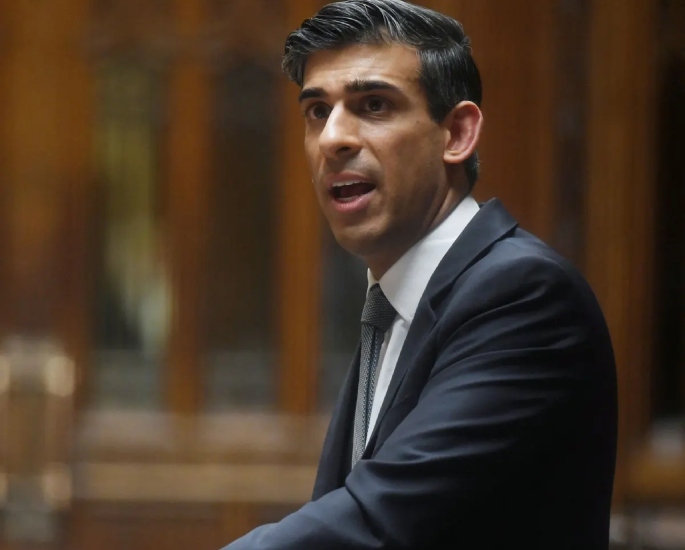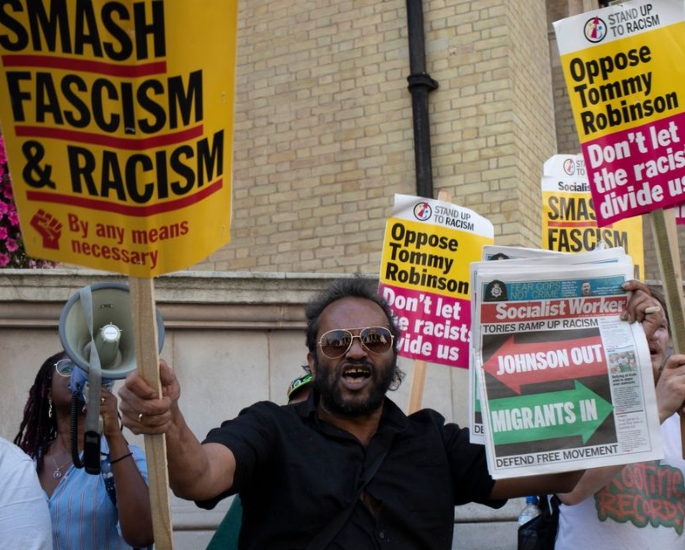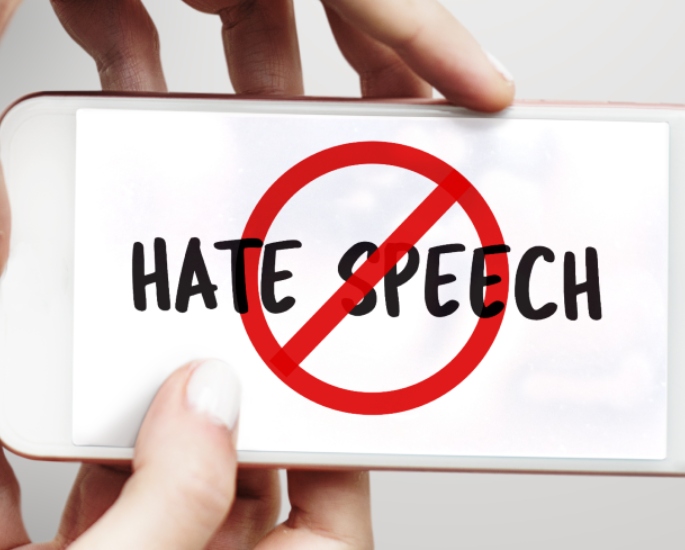"I seriously don't feel safe in my own country"
Hate crimes, by definition, are violent acts committed against people due to their ethnicity, sexual orientation, or cultural beliefs.
They can force people to move out of their homes over fear of safety and be costly as people may have to repair their cars and clean off graffiti from their property due to attacks.
Hate crimes have always been present in the UK. However, since 2010, the frequency and severity of them have increased significantly.
Between March 2021 and March 2022 alone, police recorded a 26% increase in hate crimes within the UK across all five of its recorded categories.
The police monitor five strands of hate crime based on:
- Race or ethnicity.
- Religion or beliefs.
- Sexual orientation.
- Disability.
- Transgender identity.
Race-based hate crimes made up most of the offenses with 109,843 recorded between March 2021 and March 2022 – nearly a 20% increase compared to the same period in the year before.
Religious hate crimes also increased by 37% to 8,730 cases with two in five of those crimes aimed at Muslim people, and one in four aimed at Jewish people.
Crimes aimed at disabled people increased by 43%, the largest increase seen since March 2017.
While the cases of hate crimes have increased over the years, this does not mean that the whole of the UK is becoming hostile and these instances only happen in certain circumstances.
Rishi Sunak vs Hate Crime

Rishi Sunak’s entry into 10 Downing Street marked an achievement for the first British South Asian prime minister.
While most of the population welcomed the diversity, there was a backlash from some.
A caller told the LBC that “Rishi’s not even British”. However, in a study performed by IpsosUK, only 3% of those asked agreed that to be British you had to be white.
This is a significant decrease from the 10% that agreed with this statement when the study was done in 2006.
9% also said that they would feel negative about having a prime minister from an ethnic minority background. While not preferable, the figure is a significant improvement from 2006.
When asked to comment by reporters in the Latvian capital Riga regarding the controversy of Jeremy Clarkson’s column on Meghan Markle, Rishi Sunak said:
“I absolutely don’t believe that Britain is a racist country.”
“And I’d hope that as our nation’s first British Asian Prime Minister when I say that it carries some weight.”
This shows that the foundations of racism and systemic racism still lie within the UK’s borders.
Rishi’s appointment brought backlash from the public, even though he was still part of the party many people voted for.
But, the colour of his skin brought questions about his leadership and skill to lead the UK forward.
Brexit’s Impact on Hate Crimes
Brexit has also contributed to the rise of hate crime, as one of the main motives for the public to vote to leave the European movement was that it would allegedly reduce immigration.
While immigration continues to rise regardless, so did the xenophobia against it. In fact, there was a 15%-25% rise in racially motivated hate crimes once the referendum had occurred.
There was a backlash against this rise in hate crime, exemplified by social media campaigns to raise awareness.
Furthermore, just over a month after the referendum, the government announced that prosecutors would be urged to push for tougher sentences for those committing these types of acts.
They also pledged additional funding for protective security measures at vulnerable faith institutions.
Although these changes did reduce the increase of hate crimes by the referendum, they did little to reduce the frequency of hate crimes overall.
Hate Crimes against British Asians

In 2018, a family of Indian origin narrowly escaped when their house was set alight by a gang of youths.
Mayour and Ritu Karlekar, as well as their two children, had their Bromley home set on fire in the middle of the night whilst they were sleeping.
While the family escaped the blaze unharmed, there was extensive damage to the outside of the property.
No suspects were arrested or identified by the police, with a 32-hour delay before the Met Police even started their investigation.
Another case is of a 21-year-old British Pakistani man who was verbally assaulted with racial slurs by a woman while walking down a road in Huddersfield, according to media reports.
The victim expressed in a statement:
“I was minding my own business. She just started having a go at me.”
“I asked her what her problem was, and she just carried on. I could tell she had a bit to drink but there is no excuse for it.
“I am a 21-year-old British-Pakistani born and raised in Huddersfield and I have never been in this situation before. After this, I seriously don’t feel safe in my own country.”
The woman in question was jailed for 16 weeks after being found guilty of racially aggravated public disorder.
Whilst not being as severe as other hate crimes, the consequences faced by the woman show that hate crime in any form has no place within the UK.
More well-known British Asians have also been victims of these acts. In 2022, former Yorkshire cricketer Azeem Rafiq witnessed a man defecate in his garden.
Describing the incident, Rafiq said:
“Recently at my family house, there was a bloke in broad daylight who, basically, walked in and out of the garden on the phone before defecating. Bringing a loo roll. And it looked all very planned.”
He and his family have also been the targets of threats and abuse since the former cricketer spoke out about the “deep-seated racism” present within the sport.
Police have issued a CCTV image of a man they want to speak to in connection with their investigation and urged anyone who recognised him to contact police.
Rafiq and his family are also moving abroad in face of the abuse, with a masked man also having been seen outside of their home.
Looking back on these events, Rafiq said:
“If I was to look at 13 months on from me opening my heart out, all that’s changed really is that me and my family have been driven out of the country.”
So from the general public to more well-known figures, hate crimes are suffered by British Asians up and down the country.
Social Media’s Effect on Hate Crimes

While social media has been host to many campaigns over the tears to stop prejudice and hate crimes, it also inadvertently brings those groups to the front of the public consciousness.
The aforementioned report by The Home Office, also showed that hate crimes against transgender people between 2021-2022 saw the biggest rise, with 4,355 reports, up 56% from 2020.
It is also the largest annual increase seen in this type of crime since The Home Office began recording hate crimes in 2013.
While The Home Office did suggest that the overall rise could be due to better recording by the police, it also attributed the increase to social media, saying:
“Transgender issues have been heavily discussed on social media over the last year, which may have led to an increase in related hate crimes.”
This does not mean that social media is useless when it comes to hate crimes, however.
It can still shed a light on important cases around the country as well as bring awareness to certain cases that individuals themselves have been involved in.
While the increase in hate crimes across the UK may seem alarming, more people are beginning to stand against it and make the UK a safer country.
There are many services and charities you can donate to support victims of hate crimes and discrimination:






























































